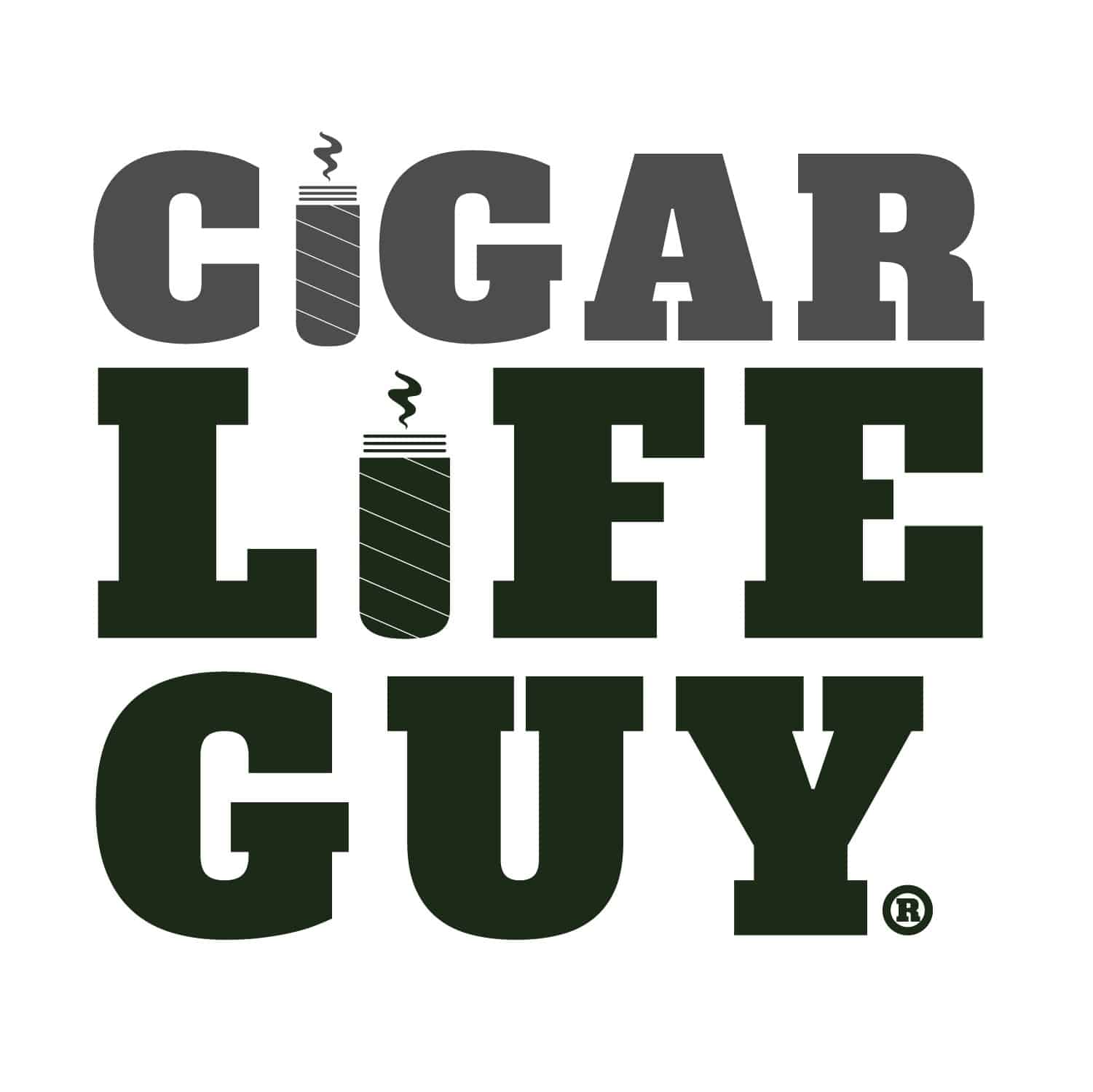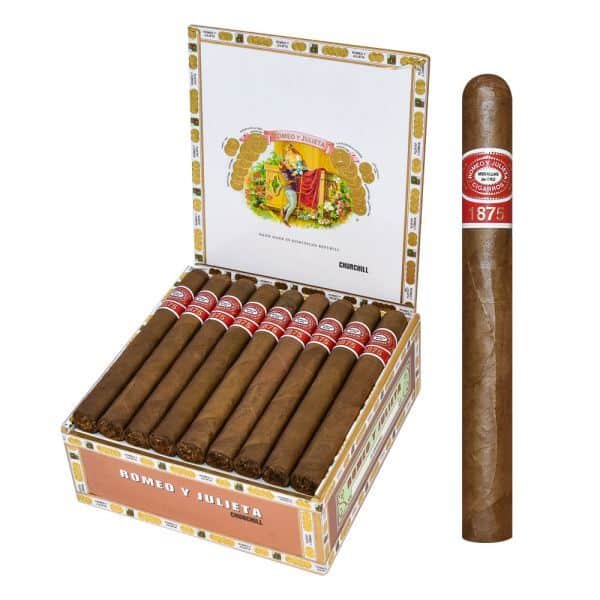Churchills, or Churchill cigars, are almost as well-known as Cubans. Naturally, the Churchills are named after famed WW2 Prime Minister, Winston Churchill. But it wasn’t always this way. It used to be that old Winston smoked ‘Clemenceaus’. So, when did that change, and why?
What are the Churchill Cigars?
Churchills are large cigars measuring between 6.75 and 7 inches long and have a 48-50 ring gauge. Over the past few decades, some cigar makers have introduced short, wide, and petite varieties of the famed cigar. But, these are not true Churchills.
Winston Churchill’s Smoking
Winston Churchill visited Cuba for a few months in 1895, shortly after graduating from the Royal Military Academy Sandhurst. While there, he fell in love with one of the country’s most popular products: cigars.
Sometimes, he smoked other brands. Yet, there were two, distinct Cuban brands that Churchill fancied. One was Romeo y Julieta. The other was the La Aroma de Cuba cigars. For the remainder of his life, Churchill received shipments of his prized Cuban cigars. Some came from his family while others came from his friends and associates. Many dealers from Havana also shipped him some of his prized smokes. This helped ensure Churchill was well-supplied with premium sticks at all times, even if those times included a crisis or war. This arrangement was especially appreciated during WW2 when they were very hard for him to come by.
It’s no secret that Churchill was a voracious cigar smoker. Rumor suggests that his average consumption was roughly 10 cigars daily. In fact, James J. Fox, the famed London cigar shop, has records of Churchill’s purchases, which tally hundreds of thousands of sticks. One record revealed Churchill bought over 1,300 cigars during a six-month period. That was back in 1964, the year before he died.
Fox, by the way, was not the only store selling him cigars. It goes without saying that Churchill spent an exceptional amount of money on cigars. One of his private secretaries once remarked that he got used to the idea that Churchill’s weekly cigar habit often amounted to more money than his monthly salary.
Churchill’s love of smoking soared to new heights when he requested the Royal Air force construct a special mask for him. The mask enabled him to smoke at 15,000 feet above the ground. He claimed that he couldn’t fly without it. The Royal Navy was happy to construct the device, which worked. And, Churchill used it on more than one occasion.
Although Churchill had his clear favorites, he often considered his budget, to a degree, before buying his cigars. He bought many brands at a time and stored them all in a storage room at his Kent estate. The room held up to 4,000 sticks, all meticulously labeled and categorized. In spite of this, he did not leave many of his beloved cigars behind when he died. He did, however, leave a silver ashtray, his favorite, in fact.
Churchill’s Image
During WW2, photographs of Churchill wearing a bowler hat with a cigar tucked between his lips began circulating. It didn’t take long for this photograph to reach the levels of fame. In fact, once the photographic image popularized Churchill’s signature appearance, it was hard to separate the man from the trademark image. This continued throughout the ebb and flow of his political career.
At one point during his career, Churchill was depicted in a political cartoon. The depiction showed him attacking his opponents with a Tommy gun. The British political cartoonist dubbed him as “Cigarface” after a Hollywood movie with a similar title. The people, however, loved the idea of Churchill as a rebel who stood up to Hitler. The reality of the fictitious idea wasn’t too far off, either.
Churchill was certainly hard-smoking and his drinking habits almost matched those of his smoking. Perhaps, the most remarkable thing about this was that he almost never appeared drunk. When asked how he managed to stay sober in spite of drinking enough alcohol to put other men on the floor, Churchill wry replied, “Practice.” Many world leaders of that time and afterward were able to get away with, and even benefited from, such public images. FDR was no exception. Neither was John F. Kennedy.
Churchill and his cigars remain indelibly connected today, more than 50 years after his death. Several companies manufacture and market these branded cigars and their accessories. In fact, Churchill memorabilia also offer profitable market opportunities. In fact, a collector in Palm Beach, Florida paid a whopping $12,000 in 2017 — for a partially smoked cigar that belonged to Winston Churchill.
When Churchill Cigars Became Churchills
But the question remains: When did Churchills become Churchills? The history here is somewhat murky. There are stories that Winston Churchill visited the Romeo y Julieta company while in Cuba, but little evidence for this exists. Odds are, Churchill actually had little to do with his favorite cigars taking on his namesake. Although, he would have been delighted by it.
What appears to have happened is this. Soon after, Churchill’s three businessmen: David Knight, John Croley, and Robert approached the Churchill family. They ask if they could use his name on a Romeo y Julieta cigar. When this took place is uncertain. But it was most likely while Churchill himself was still alive. This comes as a surprise to those who know Churchill. That’s because he was always protective over potential exploitation of his name for commercial reasons. When it came to his favorite cigars, though, he was willing to make an exception.
The Romeo y Julieta company soon renamed their Clemenceaus cigars as Churchills in honor of their favorite customer.
Why Churchill Smoked
Although renowned for his steadfast leadership, Churchill suffered periods of uncertainty throughout his life. This included severe depressions he called his black dog moods.
Churchill often turned to his cigars to ease the mounting pressure that weighed on his shoulders. In his book “Thoughts and Adventures,” Churchill recalled his parent’s early attempt to curb his smoking habit.
“How can I tell that the soothing influence of tobacco upon my nervous system may not have enabled me to comfort myself with calm and courtesy in some awkward personal encounter or negotiation, or carried me serenely through some critical hours of anxious waiting? How can I tell that my temper would have been as sweet or my companionship as agreeable if I had abjured from my youth the goddess nicotine?”— Winston Churchill, on why he was unable or unwilling to quit smoking
It’s hard to argue with that logic. In the end, Churchill died in 1965 still relative, mentally sharp at the ripe old age of 90.
Photo credit: Romeo y Julieta Cigars


